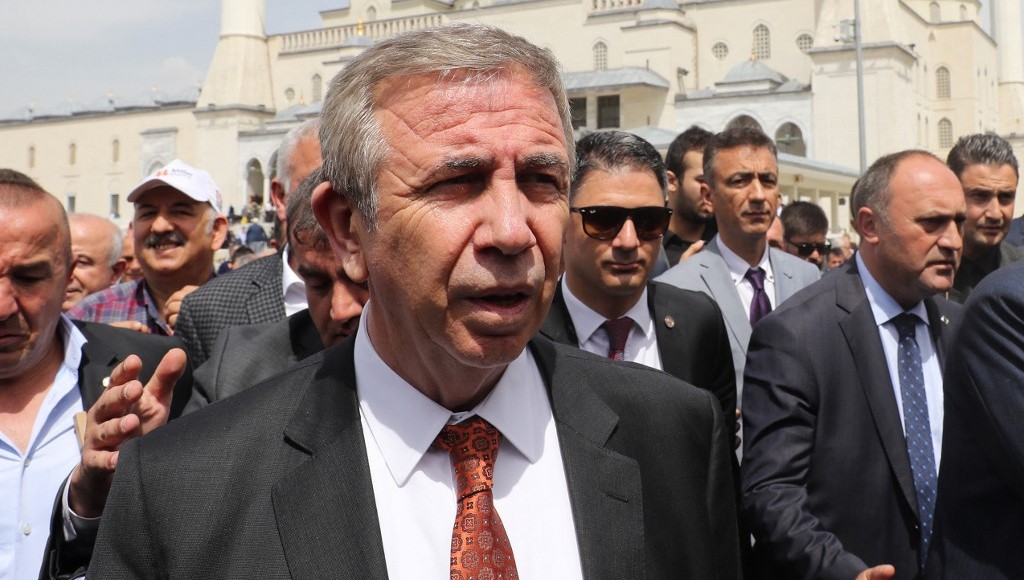Political observer, pollster and owner of the MetroPoll company Professor Özer Sencar has said that Ankara Mayor Mansur Yavaş has the potential to receive over 70 percent of Kurdish votes in the second round of a possible presidential race between him and current President Recep Tayyip Erdoğan, Euronews Turkish service reported on Tuesday.
Sencar told Euronews that MetroPoll’s latest survey conducted in April destroyed the popular belief that Yavaş wouldn’t be able to get support from Kurdish voters in a possible presidential election.
The pollster explained, citing the results of the April survey, that more than 70 percent of supporters of the pro-Kurdish Peoples’ Democratic Party (HDP) were saying they would vote for Yavaş in the second round in the event that he runs for president.
According to the survey a contest among Erdoğan, the main opposition Republican People Party (CHP)’s Yavaş and jailed Kurdish leader Selahattin Demirtaş, a former HDP co-chair, would see the Ankara mayor receiving 44 percent of the vote, the president garnering 34.3 percent and Demirtaş 13.3 percent.
However, a race between Erdoğan and Yavaş would result in the Ankara mayor getting 53.9 percent of the vote, while Erdoğan would attract 36.5 percent, with the undecided or protesting votes constituting 9 percent, in the first round, the poll shows.
The survey further reveals that Yavaş has the potential of winning the votes of 73.2 percent of HDP supporters and 23.1 of voters of the far-right Nationalist Movement Party (MHP), an ally of Erdoğan’s Justice and Development Party (AKP).
“We’ll see [more clearly] how the Kurds or HDP supporters will behave as the election approaches,” Sencar said, adding that according to the April survey one-third of voters say they’d support Erdoğan as the next president, while one-third would support his rival and the other one-third say their decision would depend on who Erdoğan’s rival is.
“If Erdoğan and Yavaş become rivals, Erdoğan could run a very different election campaign and undermine the popularity of Mansur Yavaş,” the pollster also said.
Turkey’s main opposition CHP ousted the ruling AKP from the Ankara government for the first time in 25 years by winning the March 31 local elections in 2019. CHP candidate Yavaş garnered 50.9 percent of the vote and became mayor, while Mehmet Özhaseki, the AKP candidate, came in with only 47.1 percent.
As part of its political strategy in Turkey’s west, the HDP, the country’s second-largest opposition party, in 2019 sat out the mayoral races in big cities and urged its supporters to cast strategic votes for the Nation Alliance, consisting of several opposition parties including the CHP.
Partly due to the support of Kurdish voters, the CHP was able to defeat the governing AKP in a number of major cities, including Ankara and İstanbul, during the 2019 local elections.
An attorney, Yavaş has been in politics since 1989, always in Ankara, where he became mayor of Beypazarı in 1999. He was elected Ankara mayor in 2019, ending the 25-year rule in the city of the AKP and its predecessors. The politician has growing public support due to his fight against corruption and efforts aimed at saving taxpayer dollars.
He was named winner of the 2021 World Mayor Capital Award by the London-based City Mayors Foundation, an international think tank dedicated to urban affairs, for his “efforts and vision to build a metropolis that will equal the great capitals of Europe and Asia” as well as his support for “the poor and the most vulnerable segments of the society.”
Erdoğan, however, has been accused by his critics of creating a one-man rule and destroying the separation of powers under the presidential system, which went into effect following a referendum in 2017, replacing the country’s parliamentary system and granting him vast powers while weakening parliament.
